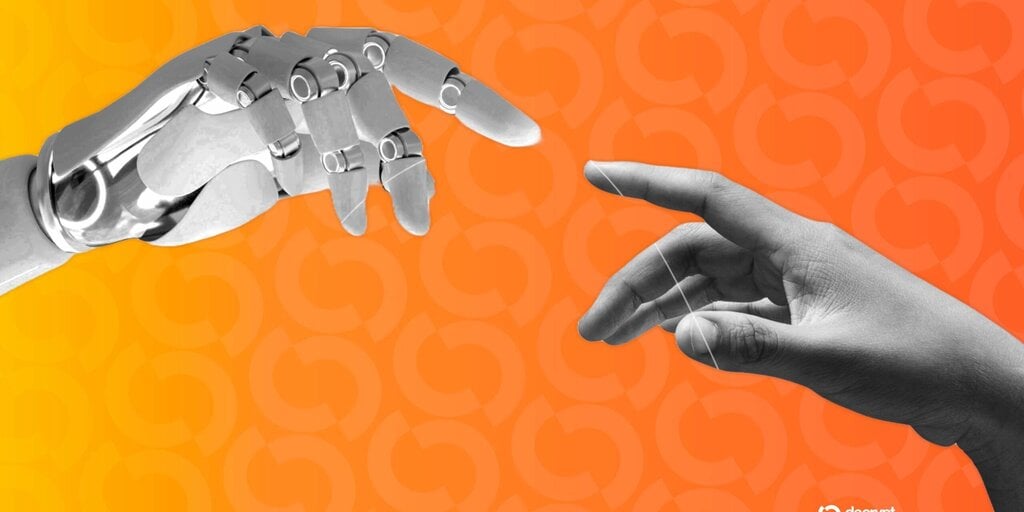In short
- An American district judge has ruled that the AI training of Anthropic on copyright protected books is “extraordinary transforming” and is eligible as reasonable use.
- However, storing millions of illegal books in a permanent library violated copyright legislation, the court said.
- OpenAi and Meta are confronted with similar lawsuits led by the author about the use of copyrighted works to train AI models.
AI company Anthropic has achieved an important legal victory in a copyright struggle for how artificial intelligence companies use copyrighted material to train their models, but the battle is not nearly over.
US District Judge William Alsup discovered that Anthropic’s use of copyrighted books to train his AI Chatbot Claude is eligible as “reasonable use” under American copyright legislation, in a ruling Leave Monday.
“Like every reader who wants to be a writer, Anthropic’s LLMS has been trained to do not racing and replicating or replacing it – but to run a hard angle and create something else,” said American district judge William Alsup in his statement.
But the judge also looked at the Amazon and Google-supported company for building and maintaining a huge “central library” of illegal books, and called that part of his activities a clear violation of copyright.
“No Carveout” from Copyright Act
The business, brought last August by authors Andrea Bartz, Charles Graeber and Kirk Wallace Johnson, accused anthropic From building Claude with the help of millions of illegal books downloaded from notorious sites such as Library Genesis and Pirate Library Mirror.
The lawsuit, which strives for compensation and a permanent order, claims that anthropic ‘a company has built up a company for millions of dollars by stealing hundreds of thousands of copyrighted books’, to train Claude, his family of AI models.
ALSUP said that AI training can be ‘extraordinary transforming’, and notes how Claude’s output does not reproduce or regurgain the works of authors, but generate new text ‘Orthogonal’ for the originals.
Judicial data shows that anthropically at least seven million illegal books, including copies of every author’s works, has downloaded to put together the library.
Internal e-mails revealed that anthropic co-founders tried to avoid the “legal/practice/business slog” of license books, while employees described the goal as creating a digital collection of “All the Books in the World” to keep “Forever”.
“However, there is no carveout of the copyright act for AI companies,” said Alsup, and noted that maintaining a permanent library of stolen works – even if only a few were used for training – “destroy the academic publication market” if permitted.
The decision of judge William Alsup is the first substantive decision of an American federal court that directly analyzes and applies the doctrine of reasonable use, specifically for the use of copyrighted material for training generative AI models.
The court distinguished between copies that were used directly for AI training, which were considered reasonable use, and the detained illegal copies, which will now be subject to further legal proceedings, including possible damage.
AI Copyright Cases
Although various lawsuits are taked-in-controversial matters against OpenAi, Meta and others who are those things still at an early stage, with motions to be in treatment or discovery.
Openi And Meta are both confronted with lawsuits of groups of authors who claim that their copyright protected works were exploited without permission to train large language models such as Chatgpt and Lama.
The New York Times Sute OpenAi and Microsoft in 2023 and accused them of using millions of times without permission to develop AI tools.
Reddit also recently sued Anthropic and claimed that it was the Reddit platform to train more than 100,000 times to train Claude, even though he claimed to have stopped.
Generally intelligent Newsletter
A weekly AI trip told by Gen, a generative AI model.

